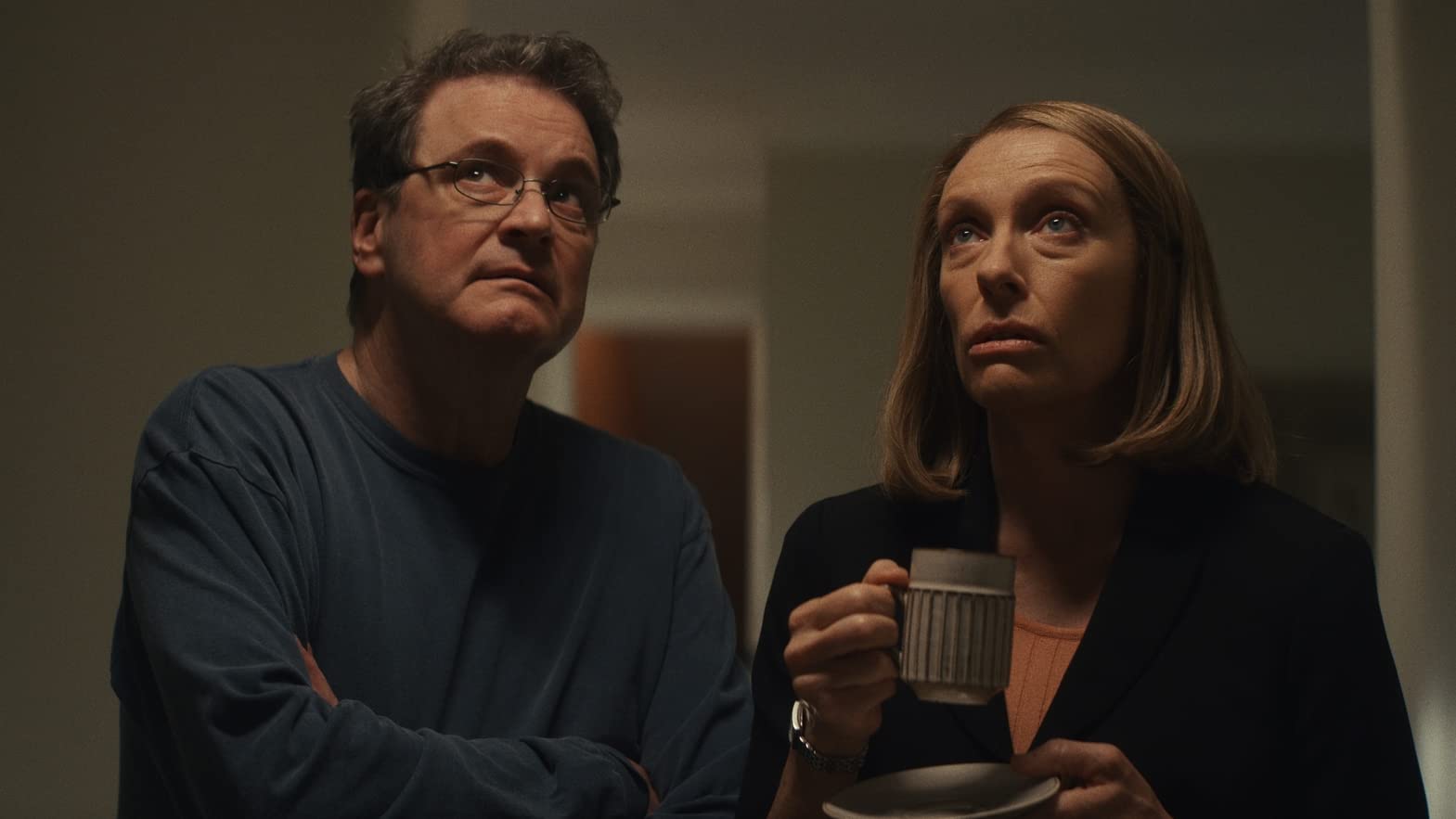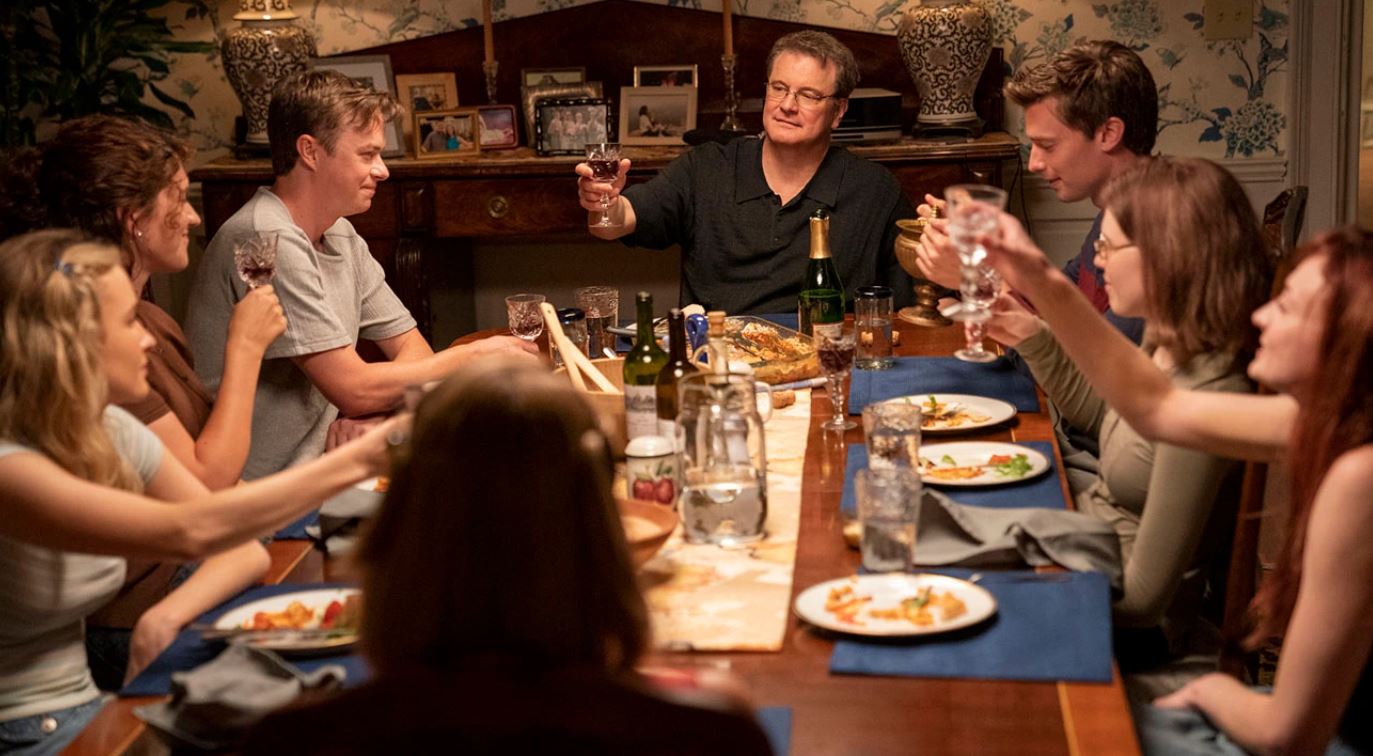On Dec. 9, 2001, police were called to a home in Durham, North Carolina, where a woman named Kathleen Peterson was found dead. Her body was splayed at the bottom of a staircase, covered in copious amounts of blood. Her husband, Michael Peterson (a former Marine, little-known novelist, and failed mayoral candidate), claimed she had a few too many drinks and fell down the stairs while he was outside by the pool. Authorities (and anyone else in their right mind, don’t at us) said he killed her.
The ensuing investigation and trial brought to light many secrets about the unusually blended Peterson family, including Michael Peterson’s closeted bisexuality and affairs with men as well as a peculiar incident from almost 20 years prior in which he was the last person to see a female friend named Elizabeth Ratliff alive…before she was discovered dead at the bottom of the stairs. (Stop us if you’ve heard this one before.)
The stranger-than-fiction story was the perfect source material for some kind of media venture, and indeed, a group of French filmmakers swooped in to capture the trial for a documentary titled The Staircase, which was released on July 22, 2004, and is now streaming on Netflix. But HBO Max took the narrative a step further, fleshing out this bizarre tragedy in a mini-series starring Colin Firth and Toni Collette that recently wrapped up on the streamer.
Only one version of The Staircase is truly worth watching. We’ve saved you the agony of watching both by pitting them against one another and declaring a winner. Read on and discover which true-crime tale deserves your full attention.
All Photos: Netflix and HBO Max
Staircase
-
Objectivity

You’d think that a documentary would be more objective than an HBO mini-series (which screams melodrama) but when it comes to The Staircase, you’d be wrong. The documentary is very heavily weighted toward Michael Peterson’s defense. Hell, one of the editors on the series dated Michael Peterson for around 13 years! It’s only in The Staircase mini-series that we see the situation from multiple vantage points – and no one looks angelic.
Winner: The Staircase mini-series
-
Depiction of Kathleen Peterson

Toni Collette is fucking fantastic as the overstretched executive and (step)mom who’s single-handedly taking care of a big, dysfunctional family in The Staircase mini-series. Her characterization is full of nuance, depicting a feisty, sensual, smart woman with too much on her plate. The Staircase documentary barely even pauses to consider who Kathleen Peterson was or what made her beloved by so many; it simply flashes the same smiling photographs (followed by gory crime scene shots) over and over again in lieu of delving deep into her multi-faceted personality.
Winner: The Staircase mini-series
-
Character Development

Though it is fictionalized to some degree, the mini-series gives viewers a more in-depth look at every person in Michael Peterson’s orbit, from his adult children and ex-wife Patty to Kathleen’s extended family. The documentary is unfortunately myopic in comparison, focusing its lens primarily on Michael, who is very much a shallow character, even as a flesh-and-blood human being.
Winner: The Staircase mini-series
-
Respect for the Victims

The most disturbing part of the documentary isn't the crime or body count; it’s the way so many people find humor in the deaths of two women (Kathleen Peterson and Elizabeth Ratliff). If this were your partner’s or parent’s death being picked apart onscreen, would you find anything humorous about it? In this sense, The Staircase mini-series is much more respectful of the victims, refusing to turn either into joke fodder.
Winner: The Staircase mini-series
-
Reenactments

The Staircase documentary doesn’t do a great job of explaining what happened to Kathleen Peterson. As defense attorney David Rudolf states, it's not the defense's job to prove innocence or even explain what happened. So the documentary doesn't, and it's completely unconcerned with compelling visuals to show what might have happened. The Staircase mini-series, however, not only depicts a fall and a murder, it also delves into the bizarre “owl theory” as posited by Michael Peterson’s neighbor, Lawrence Pollard, in 2008. The mini-series reenacts all three theories without prejudice toward one or the other, allowing the viewer to interpret which seems most plausible. (The murder, obviously.)
Winner: The Staircase mini-series
-
Slimy Defense Attorney

Michael Stuhlbarg is almost unrecognizable as Michael Peterson’s slimy defense attorney David Rudolf in The Staircase mini-series. But even slimier is the real-life David Rudolf in the documentary. Slimier still? (We really like the word "slimy.") Rudolf married TV reporter Sonya Pfeiffer, who covered the Peterson trial and is now a partner at Rudolf’s law firm. Conflict of interest, much?
Winner: The Staircase documentary
-
Self Awareness

The Staircase documentary is so in love with its star (Michael Peterson) and itself (mournful string music, self-indulgent title cards) that it can’t see how biased its depiction of events is. It really should have been called Michael Peterson’s Staircase, because the story told there is 99 percent his.
The mini-series, however, is hyperaware of people’s insatiable hunger for true crime, and includes not only the making of the documentary in its narrative (meta) but also depicts how those around Michael Peterson, like his oldest son, Todd, capitalize on their association with him or become obsessed with proving his innocence, like the owl-theory neighbor.
Whereas the documentary is desperate to get you on Michael Peterson's side, the mini-series is satisfied with letting the unknowable be.
Winner: The Staircase mini-series
-
Entertainment Value

Violence against women shouldn’t be entertainment, but in American culture, it is. Since both depictions of The Staircase were made to entertain, which one does it better? There’s really no contest. The documentary is a low-budget, linear snore, while the mini-series is an irresistible binge-watch that keeps the viewer discombobulated – and engaged – by jumping around in time.
Winner: The Staircase mini-series
-
Overall Winner

There are no winners in the real-life scenario that inspired both versions of The Staircase. That said, there is a winner when it comes to how this convoluted story was told. The mini-series is not only more entertaining, it is more layered, thought-provoking, and visceral than the documentary could ever hope to be. Even if not all of the mini-series' contents are "true," the depiction feels truer. And as we’ve seen from many examples of the (in)justice system, truth doesn’t really matter when it comes to crime and punishment.
Overall Winner: The Staircase mini-series




